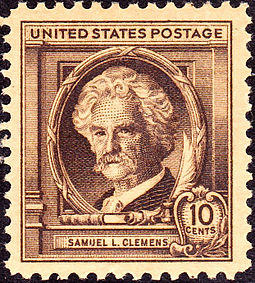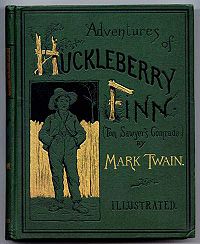Huckleberry Finn without the “N” word?

Mark Twain’s classic* stories “The Adventures of Tom Sawyer” and “Huckleberry Finn” have been the subject of intense scrutiny for decades. The repeated use of “nigger” and “injun” have resulted in outright bans in public schools and libraries. The “N” word appears over 200 times in Finn. First published in 1884, the word was one of common usage.
Referred to as a masterpiece and the source of all modern American literature, Huckleberry Finn and Tom Sawyer are scheduled to be released in a more politically correct version. In the opinion of Twain scholar, Prof. Alan Gribben of Auburn University in Alabama, stated that “For a single word to form a barrier, it seems such an unnecessary state of affairs.”
Gribben replaces the offensive slurs with “slave.” He commented that “Race matters in these books. It’s a matter of how you express that in the 21st century.”
The publisher recognizes this is a form of censorship, but explains that there is a market for a version of the books that are less hurtful and less controversial. Gribben is described as so compassionate about teaching Twain that he’s willing to risk his reputation on this version of an American classic. Some see him as saving these books from obscurity. Those opposed to the word change consider it a disservice to education.
What do you think? Do you recognize that changes in language, art and culture occur over decades or centuries? Should a book be censored because of offensive language, although universally recognized as a masterpiece? If, because of repeated use of the “N” word, African-American students hesitate to read Finn and Sawyer, is a more politically correct version acceptable?
* “A classic is a book which people praise and don’t read.” Mark Twain (birth name was Samuel Longhorne Clemens), American author and humorist (1835-1910)




